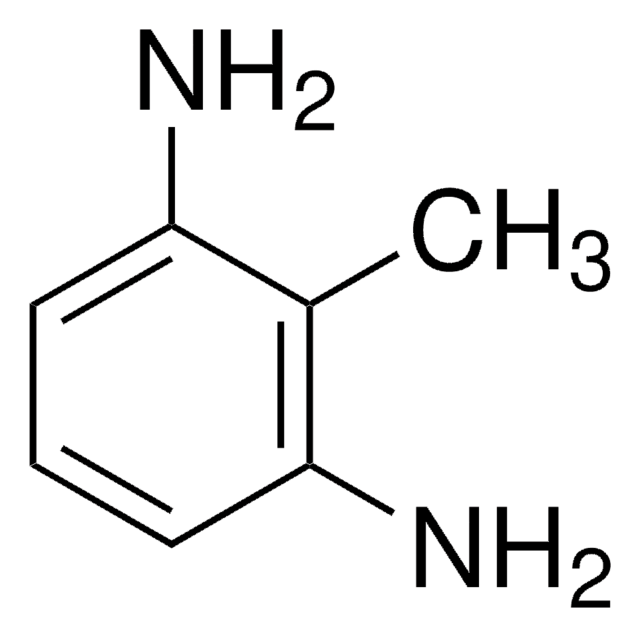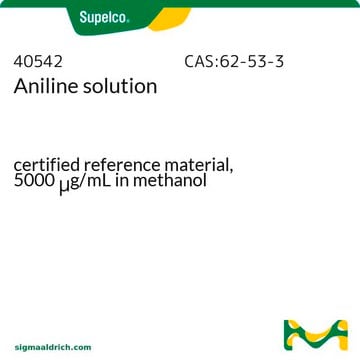442315
2,4-Dimethylaniline
analytical standard
Synonym(s):
1-Amino-2,4-dimethylbenzene, 2,4-Xylidine, 4-Amino-m-xylene
About This Item
Recommended Products
grade
analytical standard
vapor density
4.2 (vs air)
vapor pressure
0.16 mmHg ( 25 °C)
CofA
current certificate can be downloaded
autoignition temp.
860 °F
expl. lim.
7 %
packaging
ampule of 1000 mg
technique(s)
HPLC: suitable
gas chromatography (GC): suitable
refractive index
n20/D 1.558 (lit.)
bp
218 °C (lit.)
mp
−14.3 °C (lit.)
density
0.98 g/mL at 25 °C (lit.)
application(s)
environmental
format
neat
storage temp.
2-30°C
SMILES string
Cc1ccc(N)c(C)c1
InChI
1S/C8H11N/c1-6-3-4-8(9)7(2)5-6/h3-5H,9H2,1-2H3
InChI key
CZZZABOKJQXEBO-UHFFFAOYSA-N
Looking for similar products? Visit Product Comparison Guide
General description
Application
Signal Word
Danger
Hazard Statements
Precautionary Statements
Hazard Classifications
Acute Tox. 3 Dermal - Acute Tox. 3 Inhalation - Acute Tox. 3 Oral - Aquatic Chronic 2 - STOT RE 2
Storage Class Code
6.1A - Combustible acute toxic Cat. 1 and 2 / very toxic hazardous materials
WGK
WGK 3
Flash Point(F)
208.4 °F - closed cup
Flash Point(C)
98 °C - closed cup
Personal Protective Equipment
Regulatory Listings
Regulatory Listings are mainly provided for chemical products. Only limited information can be provided here for non-chemical products. No entry means none of the components are listed. It is the user’s obligation to ensure the safe and legal use of the product.
FSL
Group 4: Flammable liquids
Type 3 petroleums
Hazardous rank III
Water insoluble liquid
ISHL Indicated Name
Substances Subject to be Indicated Names
ISHL Notified Names
Substances Subject to be Notified Names
JAN Code
442315:4548173941110
Choose from one of the most recent versions:
Already Own This Product?
Find documentation for the products that you have recently purchased in the Document Library.
Customers Also Viewed
Our team of scientists has experience in all areas of research including Life Science, Material Science, Chemical Synthesis, Chromatography, Analytical and many others.
Contact Technical Service














